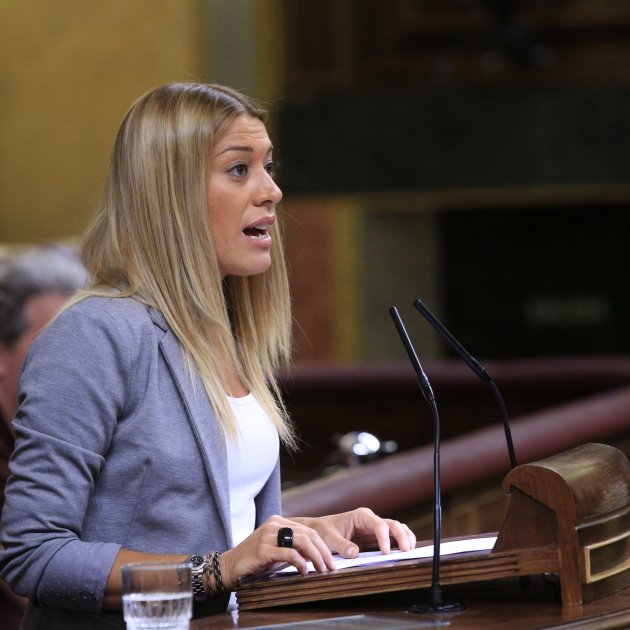Spain's governing PSOE and the Catalan party PDeCAT have agreed on a motion by which they accept it's the Catalan people who should decide on their future. The bill "urges the [Spanish] government to start a process of political dialogue with the government of Catalonia in which everyone can defend their ideas, aspirations and projects freely, without impositions or impediments". This process should aim to agree upon the means for "Catalan society to determine its future in the framework of the current legal system".
PSOE originally planned to explicitly specify that they meant Spanish law, a reference that was deleted in the end, PDeCAT sources explain. As such, no limits are placed on what happens next and any eventual result can be appealed under international law, which does recognise the right to self-determination. Congress deputy and vice-president of PDeCAT, Míriam Nogueras, said that the ball is now in PSOE's court. "They'll have to find the way for Catalan citizens to be able to determine their future," she said.
Nogueras shared the news on Twitter, adding a direct message to the PSOE: "1. As Turull, Rovira and Herrera explained to you in 2014, the legal framework ALLOWS a negotiated referendum. 2. We won't renounce other paths if you pull your socks up so that it's the citizens of Catalonia who decide Catalonia's political future."
Debate
The bill was debated today in the Spanish Congress. PDeCAT's spokesperson, Carles Campuzano, said that it "sends a message to Catalan and Spanish society that it's possible to channel democratic requests along the path of dialogue" to avoid a conflict which the majority "don't want".
Carles Campuzano. Photo: Efe
According to Campuzano, the Diada yesterday, Catalonia's national day, demonstrated that the "repressive" path hasn't been capable of "quieting" Catalan society, and the motion holds up dialogue "as a political solution". "The motion will be the first political mandate from the chamber since 2012 which urges dialogue to confront the situation in Catalonia" and "defends the legitimacy of all ideas", said Campuzano.
Everything except independence
For his part, PSOE deputy José Zaragoza insisted that this dialogue has to take place within the framework of Catalonia's Statute of Autonomy and the Spanish Constitution because "there cannot be dialogue without respecting the law". "Seven years of conflict aren't overcome in three months, but opening dialogue paths allows us to move forwards", he said before adding that "we can talk about everything except independence".
This reference wasn't to the liking of ERC's spokesperson, Joan Tardà, who noted that "there's only one solution" to the Catalan conflict: "dialogue without limits" for a "referendum which doesn't exclude anyone". The party later announced that it would therefore abstain when the motion goes to a vote.
"The more negotiation there is, the more possibilities there are to reach an agreement", said Tardà, who called for dialogue "from zero" and noted that "we wouldn't have reached the point we've reached" if, in 2014, the Congress had accepted the bill to give Catalonia powers to call a referendum brought before them by Jordi Turull, Marta Rovira and Joan Herrera.
Deputy Joan Mena (En Comú Podem), announced his party's support for the bill and said that "there will be no normality" whilst there are prisoners, nor whilst there is no joint commitment to "dialogue and an agenda of easing tensions". "After everything that's happened, anyone who doesn't want to negotiate and reach agreement will end up politically irrelevant," he warned.
Rejected by Cs and PP
The bill came up against direct opposition from Cs and PP. Cs' deputy spokesperson, Juan Carlos Girauta, said that there are people "excluded" and "insulted" in Catalonia by the independence movement. "Dialogue is great, but there's no real dialogue when one of the two sides proposes untouchable premises", namely that the political prisoners should be released and a referendum held, he said.
Jordi Roca (PP) made similar comments: "you cannot negotiate with people who lie and use violence", nor with those who "attack the Constitution".
